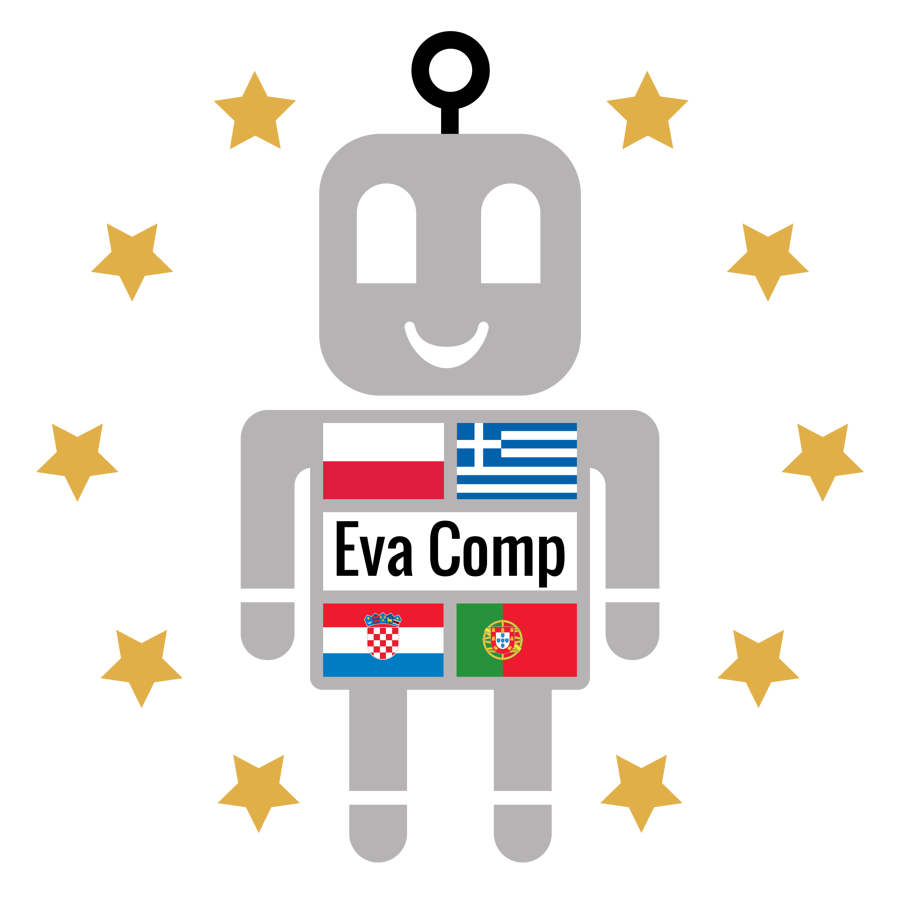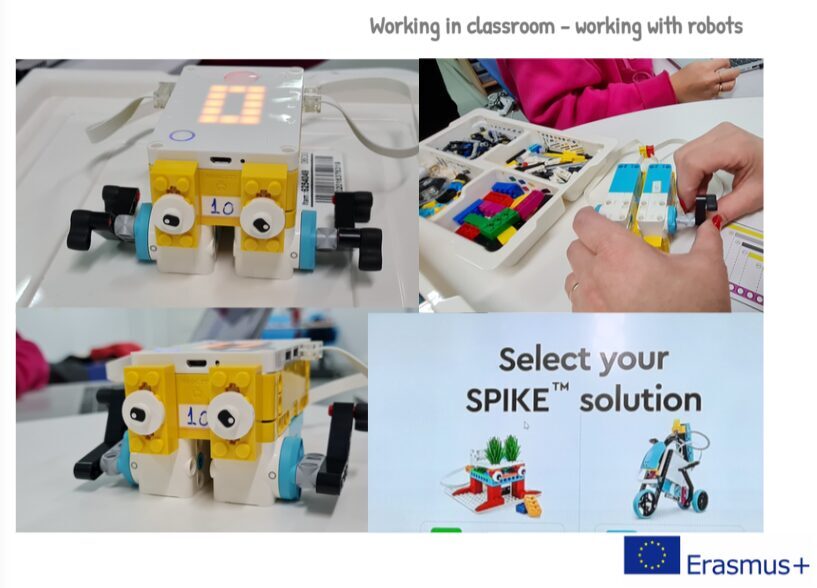 Evaluation of competencies in Robotics Learning Scenarios - Erasmus+ Project KA201 – 2019 - 2019-1-PT01-KA201-061331
Evaluation of competencies in Robotics Learning Scenarios - Erasmus+ Project KA201 – 2019 - 2019-1-PT01-KA201-061331
Teachers are one of the most trained professionals. However, the constant evolution of society requires these professionals to be updated and attentive to its changes.
Early School Leaving is one of our concerns; a key point in all partnership problems. Even if one student leaves school, this is a problem of the utmost importance and schools have to deal with it so that this phenomenon stops occuring.
The traditional way of teaching does not motivate most of these students, many of which have cognitive and social problems, are of absent families, literally and metaphorically, and with fewer resources to overcome their limitations.
Key competences will prepare them to overcome most of these problems. It may be the only way for many of them to jump out of the circle of poverty (social, monetary and emotional, too).
This project aims to boost skills and focus on our students' abilities. Working together among different partners with diferent experiences will allow us to reflect on the learning processes of our schools and share innovative practices. Supporting the development of our organizations, transfer and implement innovative practices is our goal. Learning together in cooperation, peer learning and exchange of experiences will be our path. Given this scenario we should be developing more powerful environments that include both instruction and assessment to motivate the students.
The project includes mobilities and exchanges of groups of students between schools from Portugal, Croatia, Poland and Greece. The objectives of the program are for teachers and students to meet and be trained in Educational Robotics through learning scenarios. Our goal is to integrate these scenarios into the classroom, in order to make the learning process more attractive. Students take on many roles, such as designing, building and programming robots.
With the use of robotics, the lesson becomes more interesting, more demonstrative, more attractive to everyone and especially to students who face learning difficulties. In working groups they learn the concepts of cooperation, "learning by playing" and healthy competition. Students have the opportunity to solve realistic problems (real world problems) by following exploratory steps, just like in a team of researchers.
Robotic systems are already part of our lives in many fields such as industry, medicine, entertainment, etc. The benefits of educational robotics in our daily lives are indisputable and through this program, all of us - teachers, students and parents - form a better view of technology and improve our abilities to use it for our own benefit and for the benefit of society.
Educational robotics is for everyone.
 Evacomp
Evacomp
